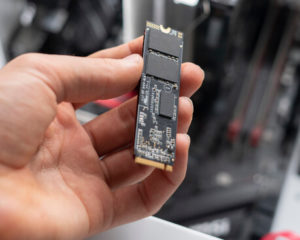GPaste is a clipboard management system. GPaste is free and open source software written in the C programming language.
Read more
The Linux Portal Site

GPaste is a clipboard management system. GPaste is free and open source software written in the C programming language.
Read more
g is an alternative to ls with lots of configurability. It’s written in Go and published under an open source license.
Read more
The Cook CLI command line program provides a suite of tools to create shopping lists and maintain recipes.
Read more
This open source software helps you record what you eat and then analyzes your meals for nutrient levels in terms of the USDA “Daily Value”.
Read more
dirstat-rs is a command-line disk usage utility, similar to windirstat. The tool can output sorted JSON.
Read more
This command-line tool estimates the disk space occupied by all files in a given path.
Read more
Parallel Disk Usage (pdu) is a highly parallelized, fast directory tree analyzer.
Read more
godu is a simple golang utility helping you to discover large files/folders. This is a terminal based tool.
Read more
erdtree is multi-threaded file-tree visualizer and disk usage analyzer that respects hidden files and .gitignore rules by default.
Read more
dua (Disk Usage Analyzer) is a tool to conveniently learn about the usage of disk space of a given directory.
Read more
gdu is a disk usage analyser with console interface. gdu is free and open source software.
Read more
NCurses Disk Usage (ncdu) is a ncurses-based du viewer. It provides a fast and easy-to-use interface through the well known du utility.
Read more
Duc is a library and suite of tools for inspecting disk usage.
Read more
k is a zsh script / plugin to make directory listings more readable, adding color and some git status information on files and directories.
Read more
ls-go is a more colorful, user-friendly implementation of ls.
Read more
ls++ is an alternative to the ls command found in coreutils. ls++ bills itself as colorized ls on steroids.
Read more
dwdiff is a diff program that operates at the word level instead of the line level.
Read more
ydiff is a view colored, incremental diff in a workspace or from stdin, with side by side and auto pager support.
Read more
diffr processes diffs and outputs them (in the console) with additional diff information on top of the unified diff format.
Read more
colordiff is a wrapper for diff and produces the same output as diff but with coloured syntax highlighting at the command line.
Read more